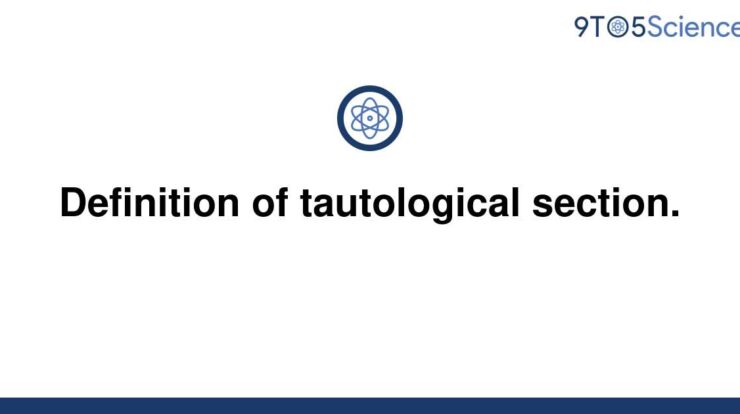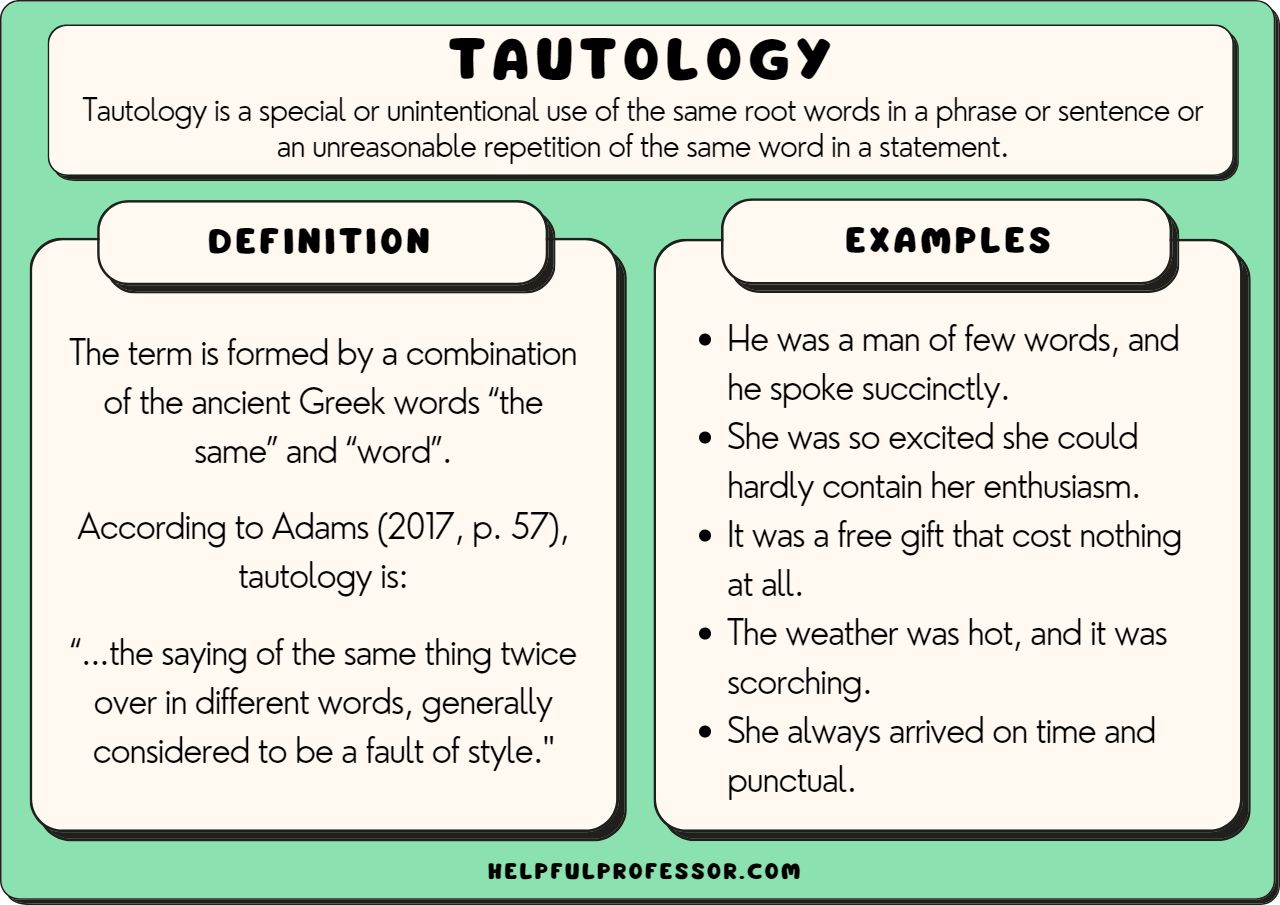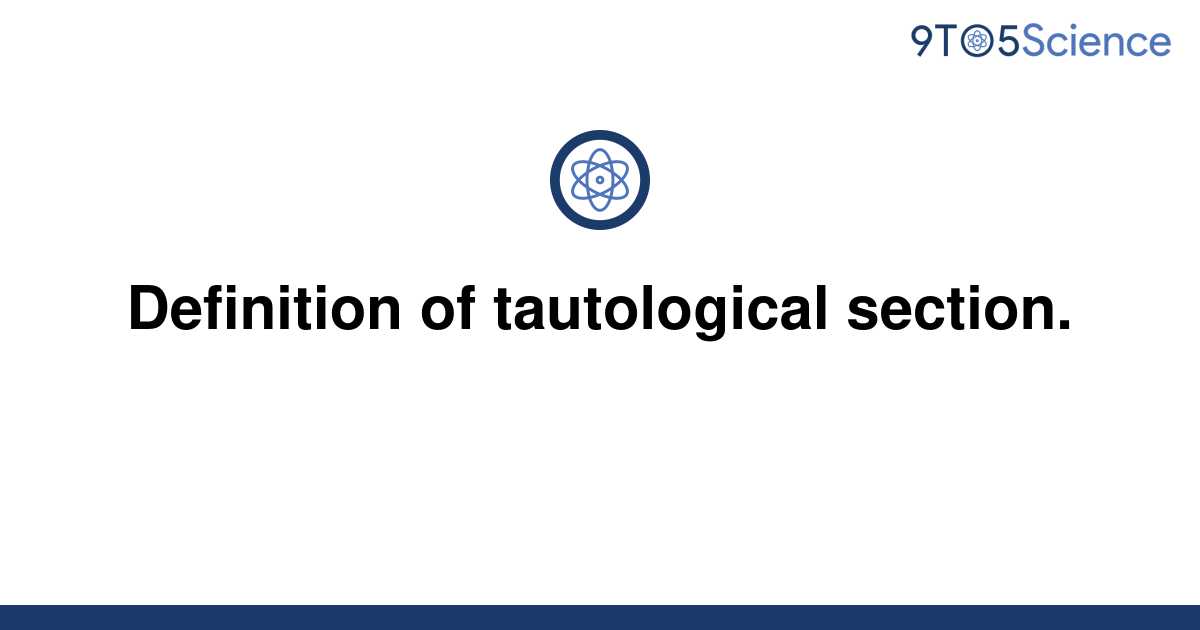
Tautological definitions, characterized by their self-referential nature, play a crucial role in communication and understanding. This in-depth analysis explores the concept, types, applications, and impact of tautological definitions, providing a comprehensive understanding of this unique approach to defining terms.
Tautological definitions, by their very nature, restate the meaning of a term using similar or synonymous words, offering a straightforward and unambiguous approach to defining concepts.
Tautological Definition

A tautological definition is a statement that restates the same idea in different words. It is often used to clarify a term or concept, but it can also be used to create a circular argument.
The purpose of a tautological definition is to provide a more precise or comprehensive understanding of a term. However, tautological definitions can also be limiting, as they do not provide any new information.
Examples of tautological definitions include:
- “A circle is a round shape.”
- “A synonym is a word that means the same as another word.”
Types of Tautological Definitions
There are two main types of tautological definitions:
- Explicit tautologiesare statements that explicitly state that a term is equivalent to itself. For example, “A square is a four-sided shape with equal sides.”
- Implicit tautologiesare statements that imply that a term is equivalent to itself. For example, “A dog is a mammal that barks.”
Explicit tautologies are more precise than implicit tautologies, but they can also be more cumbersome. Implicit tautologies are more concise, but they can be more difficult to understand.
Use Cases for Tautological Definitions
Tautological definitions can be useful in a variety of contexts, including:
- Technical writing: Tautological definitions can be used to define technical terms in a clear and concise way.
- Legal writing: Tautological definitions can be used to define legal terms in a way that is binding and enforceable.
- Education: Tautological definitions can be used to help students understand new concepts.
Tautological definitions can be a valuable tool for communication, but they should be used sparingly. Too many tautological definitions can make writing difficult to read and understand.
Alternative Approaches to Definition
There are a number of alternative approaches to definition, including:
- Contextual definition: A contextual definition provides a definition of a term in the context of a specific sentence or paragraph.
- Operational definition: An operational definition provides a definition of a term by describing how it is used in practice.
- Theoretical definition: A theoretical definition provides a definition of a term based on a theory or model.
The best approach to definition depends on the context in which the term is being used.
Impact on Communication and Understanding
Tautological definitions can have a significant impact on communication and understanding. Clear and concise tautological definitions can help to avoid confusion and misunderstanding. However, tautological definitions that are too vague or imprecise can actually make communication more difficult.
When using tautological definitions, it is important to be aware of their potential impact on communication. Clear and concise tautological definitions can be a valuable tool for communication, but they should be used sparingly.
Final Thoughts: Tautological Definition

In conclusion, tautological definitions serve as a valuable tool in communication, providing clarity and precision when defining terms. Understanding their types, applications, and impact empowers individuals to effectively convey and interpret information, fostering better communication and comprehension.
Questions and Answers
What is the primary purpose of a tautological definition?
To provide a clear and concise explanation of a term using similar or synonymous words.
Can tautological definitions be used in all contexts?
While tautological definitions offer simplicity, they may not be suitable in situations where a more nuanced or detailed explanation is required.





